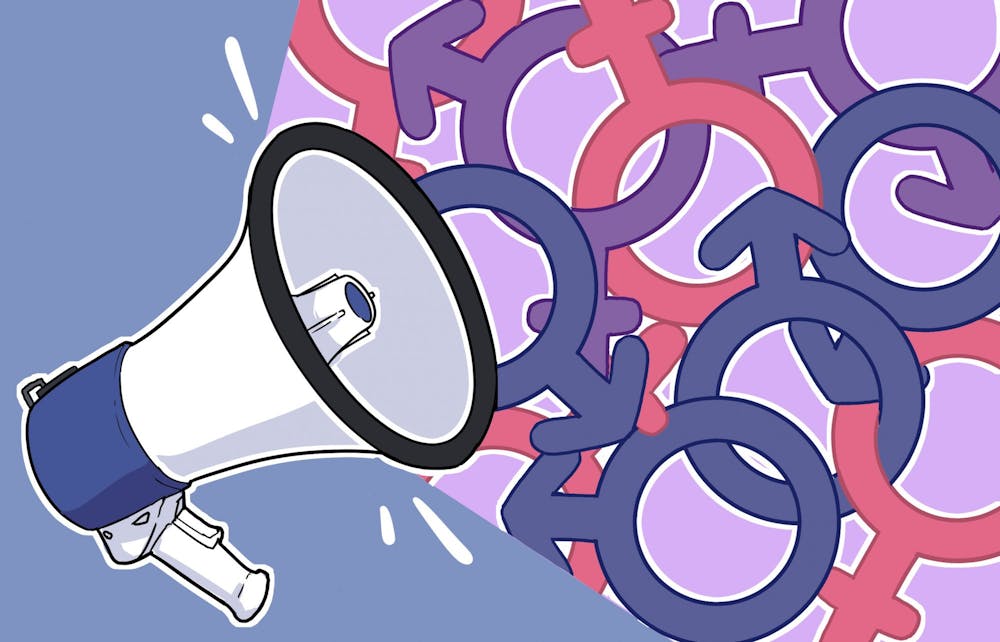Over half of Arizona’s voters were women in 2020, according to a CNN exit poll.
This is not a recent phenomenon. Women in the U.S. have had a higher voter turnout than men since the 1960s when the Civil Rights Act of 1964 was put in place to prohibit discrimination, according to the Center for American Women and Politics. Women have longtime made significant impacts on politics, and students expect this year will not be an exception.
However, the path to gender equality in voting has not been easy, and some women still face challenges when trying to be politically active.
Why women are active voters
Ashlyn Mickelson, a junior studying sociology and the secretary of Young Democratic Socialists of America at ASU, said issues on the ballot this year have prompted more women to vote.
"Women tend to prioritize healthcare, education and reproductive rights," Mickelson said. "So one of the reasons women have been more active in politics recently is because those things are more at danger."
READ MORE: As elections loom, abortion ballot measure leaves students wondering about access
Madeline Yang, a sophomore studying political science and an advocacy intern for the League of Women Voters of Arizona, also said education issues have been an important factor in women’s voter turnout.
"The impacts or even changes that public school systems have on kids — that's something that I think mothers notice a lot," Yang said.
Many of the political role models that Yang looks up to are women as well. She said that having women in office can empower other women to vote.
This is significant in this election, as Kamala Harris is the second woman to be nominated on a major party's presidential ticket, following former US Secretary of State Hillary Clinton's nomination for the 2016 election. Harris is also the first woman of color to be nominated by a major party.
Mickelson also said that women are more politically involved because they have faced inequality in issues such as education and the gender pay gap.
"There's been a lot of work by political organizations done to bring women to the playing field so that we can advocate for ourselves," Mickelson said.
Faith Calhoun, a freshman studying journalism and the treasurer for the College Republicans at ASU, said women being able to advocate for themselves can also be attributed to a cultural shift. As society changes to allow women to pursue the lives and careers they want, women can become more politically active.
"What we need to do for these young women in politics getting involved is to really emphasize (and) take pride in who they are," Calhoun said. "As a woman, you have so much value. We have so much to bring."
Although Yang said she has been fortunate in her political experiences, she added the same may not be true for everyone.
Women still face voting disparities
Mickelson said if women are impacted by other nationwide problems like the wealth gap, they might not have the means or time to advocate for themselves.
She also said both Democrats and Republicans often cater their policies and campaigns toward white women, overlooking women of color and the issues they may care about.
"There are a lot of women, there are a lot of women of color, there are a lot of queer women, and we all want to fight to better all of our lives and better our communities, but we're so exhausted," Mickelson said.
Though Yang said she hasn't faced any barriers politically, she explained that this is different for someone like her grandfather, as he faces "language barriers, cultural differences and just different familial expectations" when approaching the voting booth.
She said these issues translate to problems that women of color may face too. Despite the progress that women of color have made in political involvement, they could still have trouble with cultural expectations, or even funding and disability access.
Calhoun is a member of the Church of Jesus Christ of Latter-day Saints. In her life, she said she has seen societal expectations challenge women voters, particularly with feeling obligated to choose between having a family and a political career.
READ MORE: The secret lives of Mormon voters: Arizona members of the Church prepare to vote
She said while women may feel oppressed, hard work and advocacy could help them overcome these challenges.
"Women are trying to figure out who they can be and be okay with that," Calhoun said.
Campaigning for women voters
According to the Pew Research Center, 48% of women voted for the Republican Party in 2022, while 51% voted for Democrats.
With such a close margin in these votes, Calhoun said both parties have been focusing on reaching out to women through their campaigns this year.
"Reproductive rights is such a huge thing that the left (Democrats) pushes, and that's how they appeal to women and women voters," Calhoun said. "Everybody can be represented and have conservative traditional beliefs."
Mickelson said while the Democratic and Republican parties both tend to make promises, they may not always keep them. To Mickelson, the best way to get women involved in politics is to prove that changes will actually be made.
"Even when they say they're going to do things, things don't seem to be getting better," Mickelson said.
Despite the challenges that women may face when voting, they are still a significant demographic in this election and have worked hard to correct gender inequalities in politics.
Edited by Tiya Talwar, George Headley, Sophia Ramirez, Alexis Heichman and Natalia Jarrett.
Reach the reporter at pkfung@asu.edu and follow @FungPippa on X.
Like The State Press on Facebook and follow @statepress on X.
Pippa is a sophomore studying journalism and mass communication with minors in political science and German. This is her third semester with The State Press. She has also worked at Blaze Radio and the Los Alamos National Lab.




